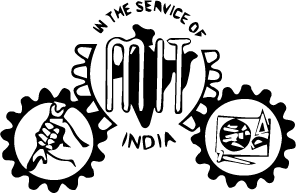
|
ICoAC 2016"Data Science and Computing"
Eighth International Conference on Advanced Computing, December 14 - 16, 2016
Department of Computer Technology, MIT campus, Anna University |

|
Workshop Details
GPU Architecture and Programming - Challenges
The advent of multicore CPUs and manycore GPUs means that mainstream processor chips are now parallel systems. A general purpose parallel computing platform and programming model leverage the parallel compute engine GPUs to solve many complex computational problems that are data-parallel. The same program is executed on many data elements in parallel enabling high arithmetic intensity. The challenge here is to develop application software that transparently scales its parallelism to exploit the increasing number of processor cores. The CUDA parallel programming model is designed to overcome this challenge while maintaining a low learning curve for programmers familiar with standard programming languages such as C. This workshop includes sessions on GPU Architecture, Parallel Programming Models, Programming with CUDA/OpenCL, Optimization and Performance Analysis of GPU Programs. This workshop will give a good exposure of GPUs and GPU Programming for the participants. The Sessions will be handled by both leading academicians in this area and Senior Software Engineers from Industry.
Learning Analytics
Many higher education bodies concluded that learning analytics has enormous potential to improve the student understanding and learning experiences. Nowadays an unprecedented scale of data about learning and learners are being generated. The learning analytics along with educational data mining have emerged with the aim of transforming this data into new insights that can benefit students and teachers. Learning analytics refers to the measurement, collection, analysis and reporting of data about the progress of learners and the contexts in which learning takes place. Participants of this workshop will have the sufficient exposure on the following concepts.
- Helps to predict learners’ performance
- Provides learners with a personalized eLearning experience
- Increased learners’ retention rates
- Helps to improve future eLearning courses
- Boost in cost efficiency
- Social Network Mining
- Semantic Web